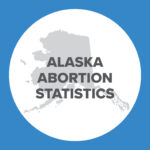Open Letter to the Hawaii Legislature On Assisted Suicide
To view this Special Report as a PDF, see: Open Letter to the Hawaii Legislature on Assisted Suicide
March 4, 2018
Dear Hawaii Legislators:
Friends in Hawaii have asked me to comment on the pending bill HB 2739, titled the “Our Care, Our Choice Act.” For three decades I analyzed proposals of this kind for the United States Conference of Catholic Bishops in Washington, D.C. Though retired from that position, I continue to do research and writing on this issue as an Associate Scholar at the Charlotte Lozier Institute and as a Public Policy Fellow at the University of Notre Dame’s Center for Ethics and Culture.
I also reside in a state with a law similar to HB 2739, and have analyzed the ways in which such laws expose sick and elderly Americans to abuse. I hope Hawaii does not repeat and aggravate my home state’s mistake.
HB 2739 declares that its “rigorous safeguards will be the strongest of any state in the nation and will protect patients and their loved ones from any potential abuse.” This is plainly false. In key respects this bill has weaker safeguards against abuse, and more explicit invitations to abuse, than the Oregon law of 1994 which has served as a model for other states wishing to legalize physician-assisted suicide.
Critiques of the Oregon law itself include my recent article “Oregon’s Assisted Suicides: The Up-to-Date Reality in 2017.”
Hawaii’s HB 2739 replicates many of the problems and loopholes of laws like Oregon’s:
It eliminates a class of especially vulnerable patients from the legal protections afforded to others, whose suicidal feelings are addressed through suicide prevention rather than suicide assistance. HB 2739’s preamble notes that of the more than 30 states to consider this issue, only 5 decided to legalize what proponents call “aid in dying” and everyone else calls assisted suicide. Some states have even acted in the opposite direction, enacting a new ban on the practice or strengthening an existing law. This is because — as the U.S. Supreme Court and New York’s highest court have unanimously concluded — legislators have good and valid reasons for concluding that the only adequate way to prevent abuse is to forbid assisting the suicide of anyone.
Like Oregon’s law, HB 2739 has absolutely no safeguard against pressure, coercion, or outright homicide at the time the patient actually receives and dies from the lethal drugs, and no penalty for such actions. Whatever safeguards exist in this regard apply when a prescription is written, but (as the bill recognizes) this is not the time when the patient or other person uses the drugs or decides they will be used;
It uses a legal fiction to claim that actions to aid a suicide or engage in other forms of killing should not be considered to be such, as long as the perpetrators fulfill certain conditions and the victim is seriously ill;
The actions of all parties need only be in “good faith” compliance with the law, a completely subjective standard — it allows actual violation of this law if the person negligently believes his or her actions are permitted;
It allows those who will inherit upon the patient’s death, and those representing a health care facility that saves money from the patient’s quicker death, to be actively involved in the patient’s death and even to witness his or her request – only one of the two witnesses may not be in these categories. So the persons with the strongest motives to coerce the patient may serve as the alleged safeguards against coercion;
All reporting on what actually occurs is by the prescribing physician and is kept confidential from all others. The physician can hardly be expected to incriminate himself by reporting that he violated the safeguards. Moreover, he need not even be present at the most crucial time when violations may be committed by others, the time when the patient dies from a lethal overdose.
But this is only the beginning. HB 2739’s “safeguards” are worse than Oregon’s in the following respects:
- Psychological consultation
Besides stating that a patient must be “informed,” and “capable” of making and communicating a decision, Oregon also allows for a consultation to determine whether the patient is “suffering from a psychiatric or psychological disorder or depression causing impaired judgment.” Obviously a patient can take in information, and communicate a decision, but still not be making a sound judgment. HB 2739 eliminates this provision. It provides only for a consultation to determine whether the patient’s decision is “informed.”
Unlike Oregon, HB 2739 does not even claim to render ineligible a patient suffering from a clinical depression that impairs judgment. The consultant determines only whether the patient is “suffering from undertreatment or nontreatment” of conditions like depression. In cases where the depression has not yet responded to standard treatment – in other words, in precisely the cases where the depression is most likely to be serious enough to distort judgment – the patient is deemed eligible for lethal drugs.
Oregon requires that any such consultation be done by a licensed psychiatrist or psychologist. HB 2739 allows it to be done by a clinical social worker.
- Assisted Suicide or Homicide?
Oregon law says patients may “take” the lethal drugs, but does not clearly forbid the administration of lethal drugs to the patient by others. HB 2739, by contrast, does refer to “self-administration” of the drugs, but then defines “self-administer” as the individual acting to “take into the individual’s body” the lethal drugs. This only aggravates the problem, as patients can “take into their bodies” substances administered by others, as when a patient swallows or absorbs drugs brought to his mouth or another part of his or her body by someone else.
Oregon says that actions taken under its law will not “constitute” assisted suicide or homicide. Possibly this could be interpreted as claiming that actions under its law are objectively different from the actions forbidden under these titles. HB 2739 goes a step further, by the way it references existing state laws on these subjects. In Hawaii, a person is guilty of murder in the second degree if he or she “intentionally or knowingly causes the death of another person.” A person is guilty of manslaughter if he or she “recklessly causes the death of another person,” or “intentionally causes another person to commit suicide.” HB 2739 adds to each of these current legal provisions the phrase: “provided that this section shall not apply to actions taken under [the chapter of law created by HB 2739].” In other words, even if someone intentionally causes or recklessly causes another person’s death, or actually causes (not just aids but causes) that person’s suicide, he or she is exempt from prosecution and penalty, as long as the person thought “in good faith” that he or she was complying with HB 2739. These exemptions would make no sense whatsoever if HB 2739 allowed only for a patient’s own act of taking a lethal overdose. The Hawaii bill carves out an exception to the law against murdering another person.
- Terminal Illness?
To qualify for the Oregon law a patient must have a “terminal disease,” defined as “an incurable and irreversible disease that has been medically confirmed and will, within reasonable medical judgment, produce death within six months.” Some commentators have said this superficially clear definition has a troubling ambiguity: Does the six-month prognosis apply only to patients who will die soon despite treatment, or to the much broader class of patients who will die soon only in the absence of treatment? The statute provides no guidance on this question. A Swedish investigator recently discovered that in practice, Oregon health officials have made their own administrative interpretation that the latter is meant. In other words, even patients who could live for decades with some easily provided treatment (a diabetic requiring insulin, for example) can be judged “terminal’ and given the lethal prescription if they refuse treatment, or treatment is withheld by a health care provider or insurance company. HB 2739 resolves this ambiguity at the statutory level, by the House’s rejection of an amendment that would have limited the bill’s scope to patients expected to die within six months “despite reasonable and ordinary medical treatment.” In Hawaii, then, it is a matter of legislative history, not merely of administrative interpretation, that the “terminal” patients given lethal drugs are those who can be made “terminal” by the neglect or greed of others.
Conclusion
If legislators are voting for HB 2739 under the impression that it has the strongest “safeguards” of any such law, and that its provision will prevent “any potential abuse,” they have been misled. It has the major loopholes and dangers of other laws in this field, including the Oregon law that proponents have held up as a model – and it adds new features of its own that aggravate the likelihood that its passage will lead to elder abuse, undue influence toward death for people whose judgment is distorted by depression, and even to the murder of people with serious but non-terminal illnesses and disabilities. I would therefore urge the legislature to reconsider.
Richard M. Doerflinger, M.A. is an associate scholar with the Charlotte Lozier Institute and a Public Policy Fellow at the University of Notre Dame’s Center for Ethics and Culture.




















